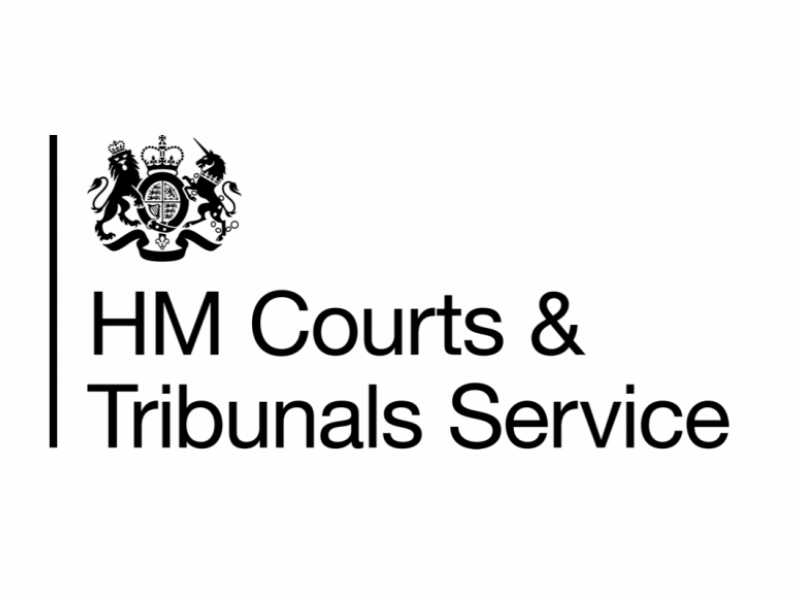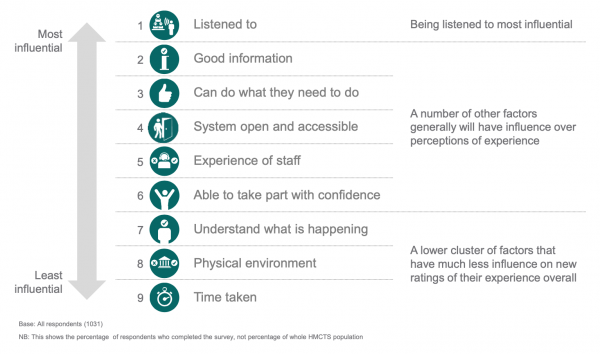
Region:
Report: HM Courts & Tribunals Service Citizen User Experience Research (HMCTS 2018)
The report provides the summary produced below –
1. Summary
HM Courts & Tribunals Service (HMCTS) is responsible for the administration of criminal, civil and family courts and tribunals in England and Wales. HMCTS is an executive agency of the Ministry of Justice.
Kantar Public was commissioned by HM Courts and Tribunals Service to carry out research among court and tribunal users (citizen users) to understand their experiences and needs when accessing HMCTS services. The research was carried out between January 2017 and October 2017. Qualitative research (48 in-depth interviews and 8 follow-up focus groups) was conducted with HMCTS users to explore experiences and expectations of the courts and tribunals system in depth. A survey of 1,031 courts and tribunals service users was then conducted to quantify user experiences overall and by the four jurisdictions: criminal, family, civil, and tribunal. The key findings are:
- The qualitative research found that the key user need was increasing the visibility of the processes and stages in the user journey which can be achieved by providing the right information in a timely manner. Having sight of the whole journey and having information on progress, as well as information on what to expect was an important factor in perceptions of experience across all jurisdictions and at all stages of the user journey.
- Users in general expected the process of going through the courts and tribunals system to be emotionally difficult, formal, but fair. Those whose experience was better than or broadly in line with their expectations were more likely to rate their experience as good.
- The qualitative work found that users gained their expectations from a number of different sources; some directly related to the courts and tribunals system, like previous direct experience of friends and family, and some from wider sources, such as TV or internet searches. These sources also ranged in how realistic they were in informing expectations.
- The quantitative research found that just under three quarters of users interviewed said they trusted HMCTS to administer the justice system (73%); similarly, just over three quarters of users felt that they were treated with respect by HMCTS (77%).
- Key driver analysis [see below] was used to explore how different factors (drivers), influence user experience. Three clusters of factors were found to have an impact on users’ overall rating of their experience. The most important factor was being listened to, which was found to be more than twice as influential on overall rating of experience than the other factors. There was some variation between jurisdictions, but being listened to was the most influential driver throughout.
- To test the importance of satisfaction with outcome of their case in shaping overall perceptions of user experience, the key driver modelling was repeated with outcome added alongside the original 9 elements shown above. In this scenario satisfaction with outcome appears as the second most influential factor, still behind being listened to.
- Over half of users rated their experience as good (54%) and just fewer than 3 in 10 rated their experience as poor (28%). Users were most likely to say they understood what was happening (84%), and for each of the other drivers of experience, results are generally positive overall.
Figure 1: Key driver analysis model
